Don’t let your feline friend’s independent, aloof demeanor fool you: Cats can become frazzled as easily as the rest of us. Unlike humans who can verbalize anxious feelings, cats communicate their stress through behavioral and physical changes that can be easily misinterpreted. Our Emerald Animal Hospital team explains feline stress causes and signs so you can learn how to recognize and help alleviate your cat’s emotional and physical discomfort.
Understanding stress in cats
To help mitigate your cat’s stress, you must first understand why it happens and the impacts the condition can have on your whiskered pal’s health and wellbeing. Cats are typically creatures of habit. They thrive on routine and their environment’s predictability. A change in their daily routine, a new addition to the household, or a shift in their living space can be stressful for your feline friend. Other factors, such as conflicts with other pets or boredom, can also contribute to feline anxiety, which is more than a behavioral issue. Left unaddressed, the condition can lead to health problems, including urinary disorders, weight loss, and a weakened immune system.
Identifying stress signs in cats
Cats are stoic creatures. To be able to detect your feline friend’s stress signs, you must become familiar with their baseline behavior and keep a keen eye out for slight departures from their typical habits and demeanor. While they are not always obvious, a cat’s stress signs may include:
- Changes in eating habits —Stressed cats may have a decreased appetite, but sometimes they may overeat.
- Reactivity — Stressed cats might exhibit unusual aggressive behaviors, such as hissing, scratching, or biting, toward their owners or other household pets
- Decreased socialization — Alternatively, stressed cats may intentionally withdraw from social interactions and spend more time hiding.
- Inappropriate elimination — Stressed cats may begin urinating or defecating outside their litter box.
- Excessive grooming — Excessive grooming can indicate stress and lead to hair loss, skin lesions, and possible infection.
- Destructive behavior — If your cat is stressed, they may scratch your furniture or chew on electrical or drapery cords.
- Vocalizing — Some stressed cats vocalize more, especially when left alone.
Alleviating stress in cats
If your feline friend is feeling anxious, they may exhibit stress signs. To help your cat cope with their stressors, follow these tips:
- Schedule a veterinary appointment — To ensure a medical issue isn’t causing your whiskered pal’s anxiety, schedule their examination with our Emerald Animal Hospital team. We can address your cat’s specific health care needs and relieve their anxiety.
- Maintain the routine — A consistent meal, play, and sleep routine can significantly alleviate your cat’s stress levels. Familiarity provides a sense of security and control over their environment.
- Create a calm environment — Loud noises, unfamiliar people, or changes in the family dynamic can cause your cat to become stressed. Maintaining a peaceful and calm atmosphere can help ease your feline friend’s anxiety. If a change is unavoidable, introduce it gradually to help your cat adjust.
- Provide enrichment — Boredom can be a significant feline stress source. Mental and physical stimulation through toys, puzzle feeders, and regular playtime can keep your cat engaged, active, and calm.
- Ensuring the litter box is cat-approved — Cats can be picky about their litter boxes. A new litter box or litter box location can cause your whiskered pal to become anxious. When choosing a litter box, ensure it is large enough for your cat to comfortably turn around. Place the litter box in a quiet area where your cat won’t be startled.
- Provide safe spaces — Like people, cats enjoy having a place to retreat and relax. Provide your feline friend with a safe and cozy space where they can escape from their stressors. This could be a quiet room with a soft blanket and calm music or a cat tower with a high perch where they can observe their surroundings comfortably.
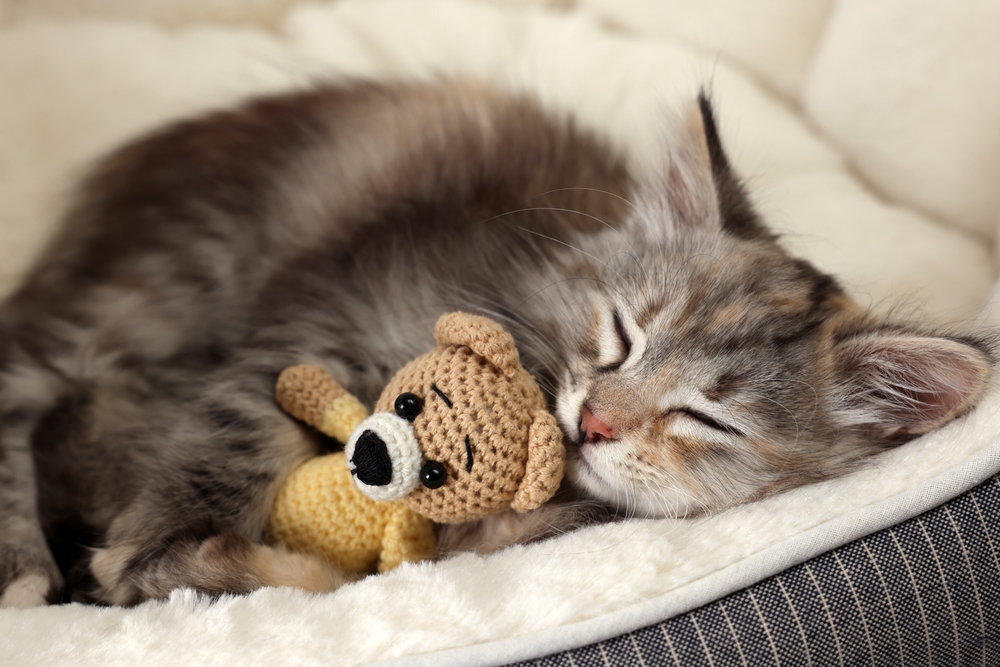
- Promote positive interactions — If your cat’s stress is a result of conflicts with other pets, try to foster a more peaceful coexistence. If you have multiple cats that become aggressive at mealtime, feed each of them in a different room to prevent interactions while they eat.
- Use calming pheromones — Products, such as Feliway, mimic calming feline pheromones, providing a cat with a sense of safety and familiarity. These products are available in various forms, including diffusers and sprays.
Patience, understanding, and persistence are key to minimizing your cat’s stress. Our Emerald Animal Hospital team is here to determine whether your cat’s anxiety has an underlying medical cause and if not, to help you understand the cause of your feline friend’s frazzled nerves. If you’re concerned about changes in your whiskered pal’s behavior or physical appearance, schedule an appointment with our team.



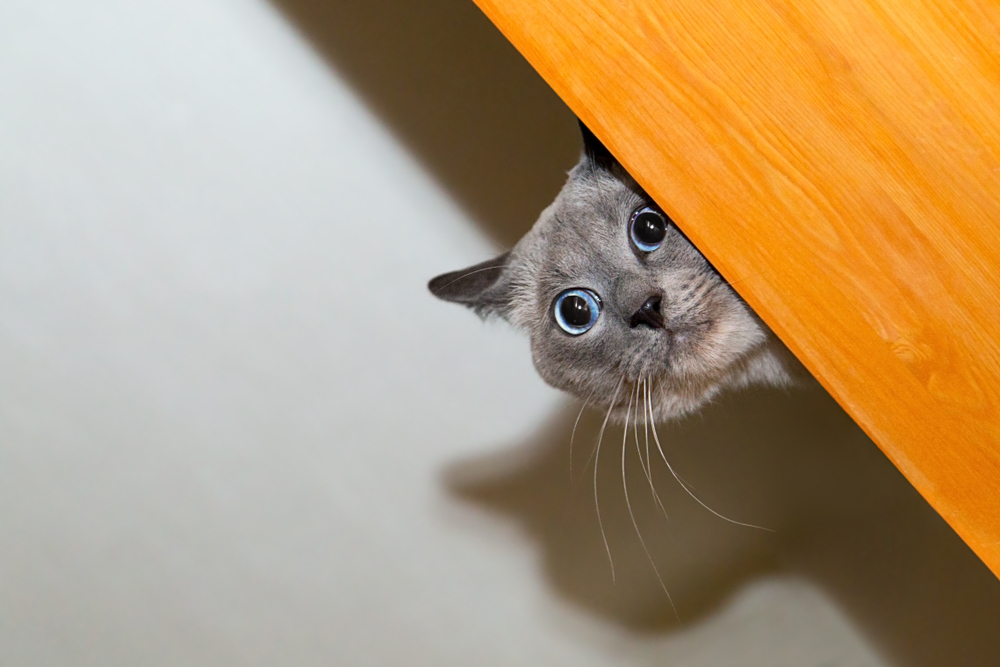
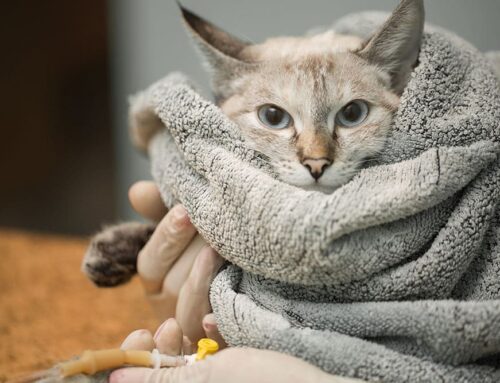
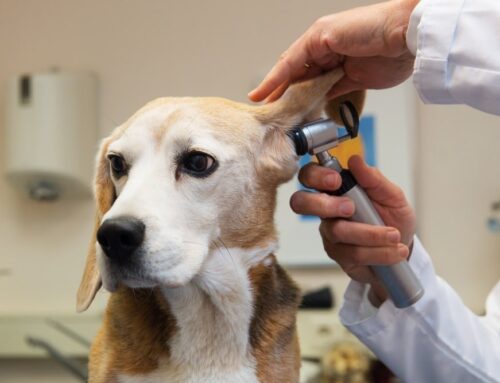
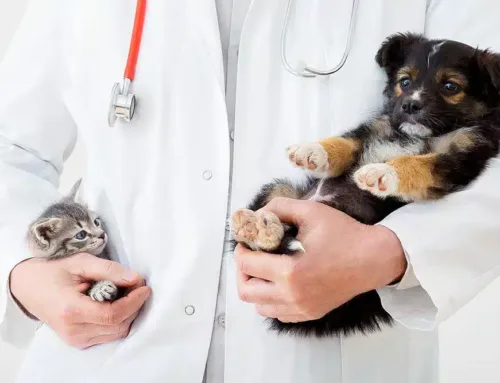


Leave A Comment